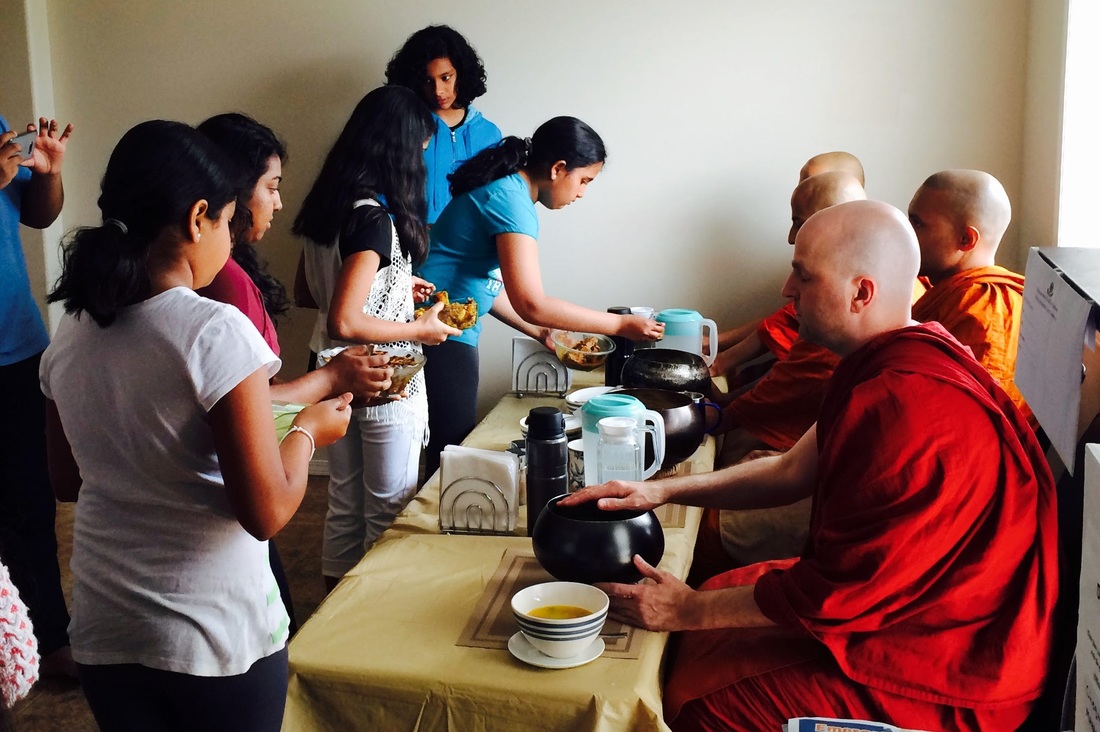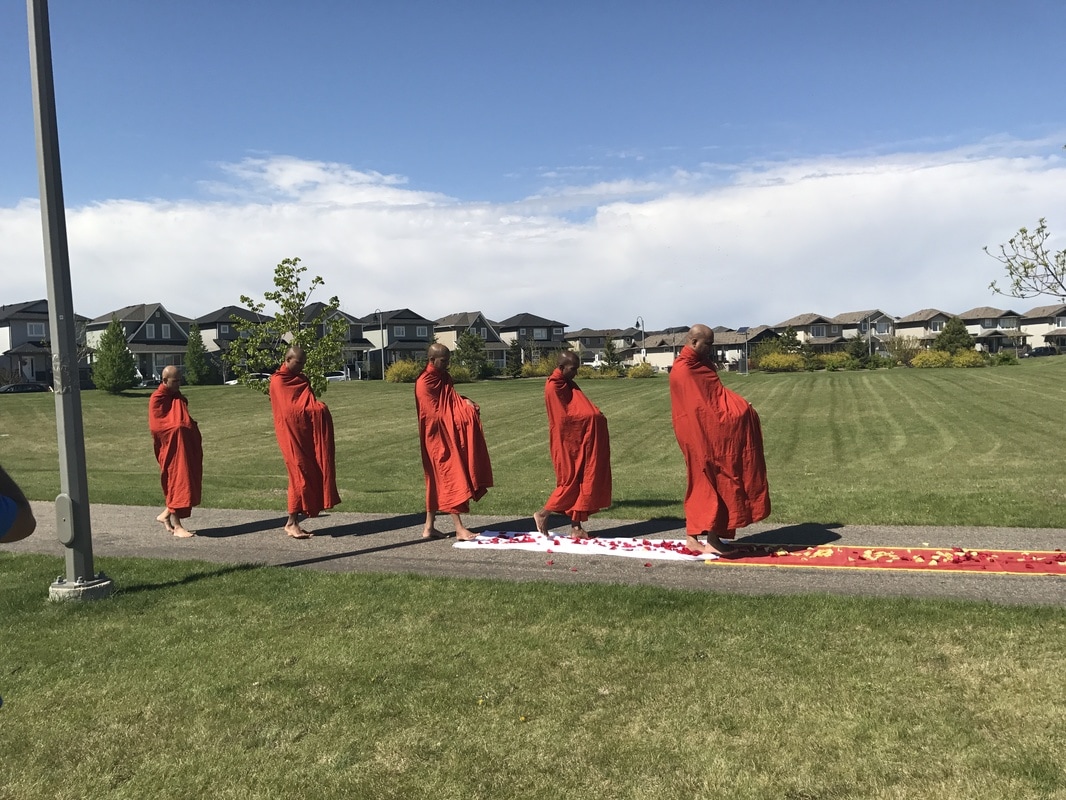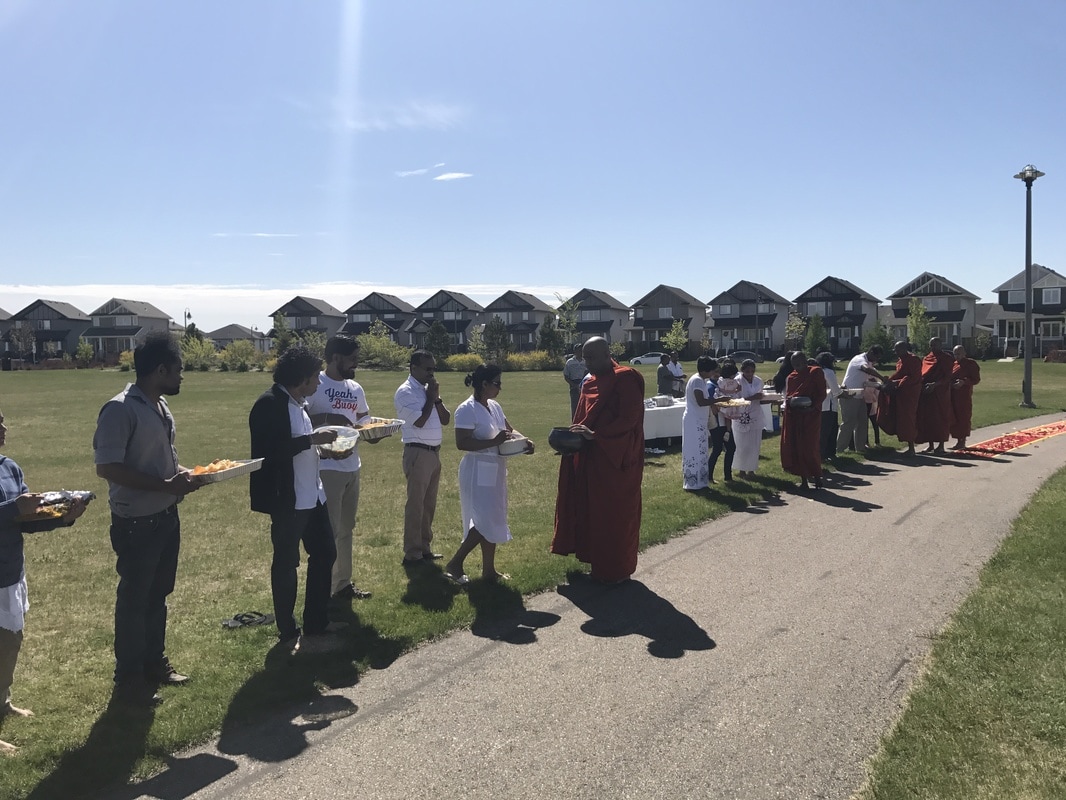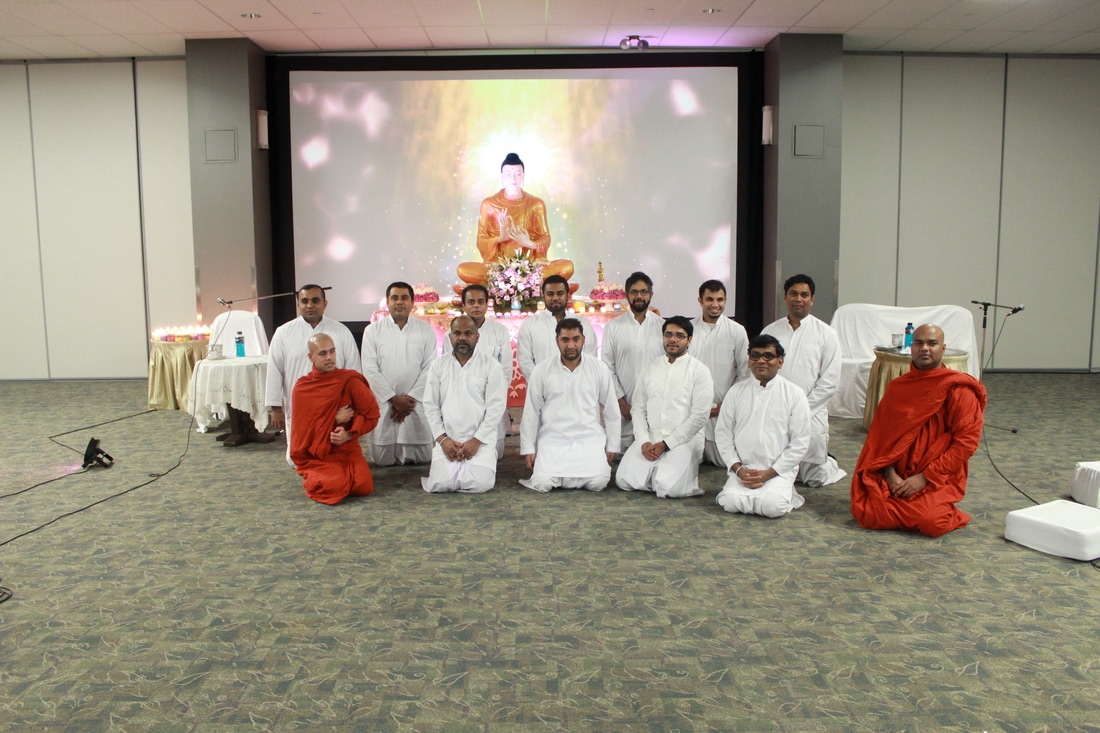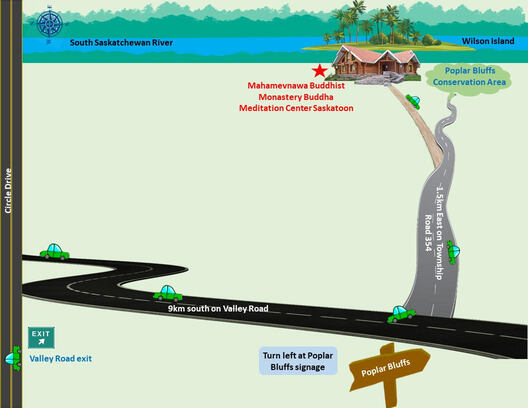Who are Monastics(Monks)? Who are Lay People?
|
The Buddha designed an organization that was perfectly suited to helping as many people as possible achieve the most happiness possible. For those who wanted to dedicate their lives completely to achieving the greatest happiness of full enlightenment he created the community of monks and nuns, also referred to as the Sangha. For those who wished to remain a part of the world while developing the wholesome qualities that lead to enlightenment, he created the community of lay disciples. These lay people observe the Five Precepts.
Monks and nuns can dedicate all of their time to learning and practicing the teachings of the Buddha. To give this focus, the Buddha instructed them to give up their jobs, family duties and property. This is possible through the practice of contentment with little. The bare necessities of life are to be provided by the lay community. Because the lay community is muchlarger than the monastic community, the burden on individuals is very light. By having regular contact with the monks and nuns, the lay people get to learn the teachings and find answers to their questions about the practice. The Buddha gave a very beautiful simile to describe this relationship: Just as a bee goes from flower to flower collecting nectar without damaging them, in the same way monastics collect small amounts of alms food from everyone in the village, not burdening anyone. And as the bee helps the flowers by spreading pollen, the monks and nuns spread the teachings of the Buddha that bring the highest happiness. This same relationship governs this monastery. Here the monks live without collecting a salary, without supporting their families, living only on what is donated to the community by the lay disciples. Because of this they are free to study and practice the Buddha’s teachings full time. And just like in ancient times the monks share what they know of these teachings freely to anyone with an interest in learning. On a practical level, lay people sign up to offer each of the two meals eaten at the monastery, breakfast and lunch. To cover other expenses such as medicine, transportation, mortgage, and utilities, some lay people choose to pledge a certain amount each month or simply offer individual donations. The monks do not accept money themselves. All financial donations are managed by a board of directors made up of lay people. Sometimes lay people also offer in-kind donations of household items as they feel moved to do so. With guidance from the monks, volunteers take care of all the day to day operations. The monks teach at many scheduled events, both at the monastery and outside locations. Sometimes lay people will invite the monks to come to their house to give a sermon and lead the chanting of protective verses. As well, the monks are available after scheduled events to answer questions or on an appointment basis. |
Just as a bee goes from flower to flower collecting nectar without damaging them, in the same way monastics collect small amounts of alms food from everyone in the village, not burdening anyone. And as the bee helps the flowers by spreading pollen, the monks and nuns spread the teachings of the Buddha that bring the highest happiness. |

